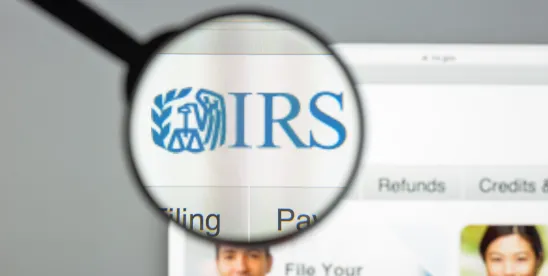Check out our summary of significant Internal Revenue Service (IRS) guidance and relevant tax matters for the week of December 16 – 20, 2024.
December 16, 2024: The IRS released Internal Revenue Bulletin 2024-51, which includes the following:
- Treasury Decision 10009, which provides guidance regarding the advanced manufacturing investment credit under § 48D of the Internal Revenue Code (Code). The guidance reflects changes made by the CHIPS Act of 2022. The § 48D credit may be claimed for qualified investments in an advanced manufacturing facility that engages in the manufacturing of semiconductors or semiconductor manufacturing equipment.
- Treasury Decision 10010, which provides the rules for claiming the Advanced Manufacturing Production Credit under Code § 45X. The regulations describe the requirements for the production of eligible components, including the domestic production requirement. The regulations also provide rules regarding the sale of eligible components to unrelated persons, as well as rules that apply to sales between related persons. They include definitions of eligible components, rules related to calculating the credit, and specific recordkeeping and reporting requirements.
- Treasury Decision 10014, which finalizes 2013 proposed regulations under Code § 752, which relates to a partner’s share of a partnership recourse liability. The final regulations adopt a proportionality rule in instances where more than one partner bears the economic risk of loss of the partnership recourse debt. The regulations also provide guidance regarding how partnership recourse debt should be allocated in tiered partnership structures, as well as guidance on the related-party rules. Interestingly, no new notice of proposed rulemaking or opportunity for public comment was provided regarding these regulations in the 11 years since the 2013 proposed regulations were issued.
- Revenue Ruling 2024-27, which publishes the base period T-bill rate for the period ending September 30, 2024, pursuant to Code § 995(f). The rate for this period is 4.93%.
The IRS also released Notice 2025-1, which provides guidance on the corporate bond monthly yield curve, the corresponding spot segment rates used under § 417(e)(3), the 24-month average segment rates used under § 430(h)(2), the interest rate on 30-year Treasury securities under § 417(e)(3)(A)(ii)(II) as in effect for plan years beginning before 2008, and the 30-year Treasury weighted average rate under § 431(c)(6)(E)(ii)(I) of the Code.
The IRS also issued Revenue Ruling 2025-1, which provides the January 2025 applicable federal rates for purposes of Code § 1274(d) and relates to the determination of issue price in the case of certain instruments issued for property.
December 17, 2024: The IRS issued Revenue Procedure 2025-8, which modifies the procedures under Code § 446 and Treasury Regulation § 1.446-1(e) for obtaining automatic consent of the Commissioner of Internal Revenue (Commissioner) to change methods of accounting for expenditures paid or incurred in taxable years beginning after December 31, 2021, to comply with § 174 or to rely on interim guidance provided in Notice 2023-63, 2023-39 I.R.B. 919, as modified by Notice 2024-12, 2024-5 I.R.B. 616.
December 18, 2024: In Notice 2025-4 the IRS stated that it intends to issue proposed regulations that, for purposes of applying Code § 482, provide a new method for pricing certain controlled transactions involving baseline marketing and distribution activities. Code § 482 permits the Commissioner to make allocations necessary to clearly reflect income or prevent tax avoidance with respect to controlled transactions. The approach for pricing the controlled transactions is described in a report of the Organization for Economic Cooperation and Development (OECD) titled “Pillar One – Amount B: Inclusive Framework on BEPS” and published on February 19, 2024. The US Department of the Treasury and IRS intend the proposed regulations to implement the substance of the OECD report in its entirety.
The IRS also issued Announcement 2025-2 in which it stated its anticipation that certain portions of future final regulations relating to required minimum distributions under Code § 401(a)(9) will apply no earlier than the 2026 distribution calendar year owing to the enactment of the SECURE 2.0 Act of 2022 and regulations promulgated thereunder.
December 19, 2024: The IRS announced in Notice 2025-5 that the optional standard mileage rate for automobiles driven for business will increase by 3 cents in 2025 to 70 cents per mile. The mileage rates for vehicles used for other purposes – such as medical purposes, moving purposes for qualified active-duty members of the US Armed Forces, and benefitting charitable organizations – will remain unchanged from 2024. The rates apply to fully electric and hybrid automobiles, as well as gasoline and diesel-powered vehicles.
December 20, 2024: The IRS announced plans to issue automatic payments later this month to eligible people who did not claim the Recovery Rebate Credit on their 2021 tax returns. The Recovery Rebate Credit is a refundable credit for individuals who did not receive one or more Economic Impact Payments, also known as stimulus payments. No action is needed for eligible taxpayers to receive these payments, which will go out automatically in December and should arrive in most cases by late January 2025. The payments will be automatically direct deposited or sent by paper check; eligible taxpayers will also receive a separate letter notifying them of the payment. The payment amounts vary depending on several factors, but the maximum payment is $1,400 per individual.
The Treasury Department also issued proposed regulations under Circular 230 to update the rules for certain tax professionals who can practice before the IRS. Among other changes, the proposed regulations would remove or update the parts of Circular 230 related to registered tax return preparers and tax return preparation. The proposed regulations would also incorporate new provisions that better align Circular 230 with the current practice environment, such as requiring that practitioners maintain technological competency as part of their practice before the IRS. The proposed regulations would also clarify that the IRS Office of Professional Responsibility retains jurisdiction over practitioners who have been suspended or disbarred from practice.
Finally, the IRS issued Revenue Ruling 2025-2, which provides tables of covered compensation under Code § 401(l)(5)(E) for the 2025 plan year.






 />i
/>i

